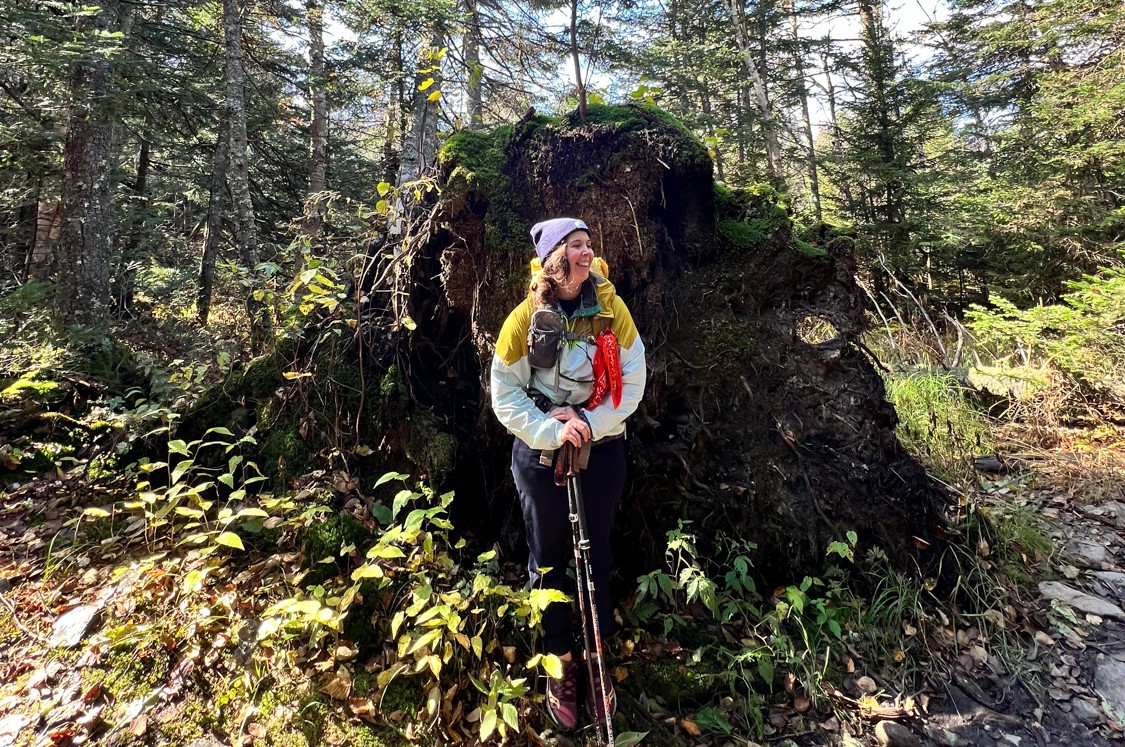Hikers are taking it upon themselves to create representation for women in the sport
Hiking the 4,265-kilometer-long Pacific Crest Trail (PCT) is no easy feat, but for Christel Bourque, a Montreal-based hiker, photographer, and visual artist, it was how she got into hiking in 2019. Four years later, she recalls how her first experience on the famous through-hiking trail made her realize women in the sport are underrepresented.
“The first thing I realized is that there are not a lot of women who do the PCT alone,” Bourque said.
To prepare for the hike, Bourque, whose experience was limited to Mont-Saint-Hilaire, turned to YouTube for information on the PCT. This is when she noticed a lack of French-Canadian hiking content tailored for women.
Due to heavy snowfall conditions (and a personal emergency that arose later), Bourque had to quit her hike after having covered roughly 1,600 kilometres of the PCT in three months. Nonetheless, she returned to the PCT in 2022, documenting her experience on her YouTube channel La Petite Marcheuse, thereby filling a void for underrepresented Quebec women in hiking.
Just 1,000 kilometres shy of the end, Bourque’s second attempt also ended abruptly due to complications associated with an insect bite that forced her to return to Canada.
A third attempt at the PCT lingers in her mind, as she continues hiking in Quebec.
Bourque noted that compared to shorter Quebec trails, the long-distance PCT comes with extra hardships, especially for women.
For one, menstrual pain doesn’t magically go away on hikes and tampons add weight to the backpack.
“I used to be the DivaCup girl, but that was impossible,” Bourque said. “I went back to tampons in 2019 and carried the used ones in those opaque dog waste bags.”
For her second attempt, the hiker took the birth control pill to handle her menstrual cycle — but not without it taking a toll on her body.
Another prevalent challenge for women hikers is hitchhiking to go to faraway towns to resupply, which Bourque did alongside other women.
“If one of us didn’t like the vibe of the person offering us a ride, it was an immediate no,” said Bourque. “We were two women and we didn’t want to get in danger.” She recalled the times when men insisted on giving them a ride or proposed shady exchanges of services.
Nonetheless, hiking is one of the sports in which discrepancies in performance between men and women are negligible.
“More and more evidence has come out that women’s bodies are better equipped for endurance activities,” said Liz Thomas, hiker and co-founder of Treeline Review, a company that specializes in reviewing women’s outdoor gear. The performance gap between the sexes in ultra-endurance activities (defined as lasting more than six hours) is merely four per cent.
Thomas, whose passion for hiking developed through her alma mater’s outdoor club, achieved the Triple Crown of Hiking after completing the PCT, the Appalachian Trail, and the Continental Divide Trail. She’s been dubbed the “Queen of Urban Hiking,” a title first given by Outside Magazine.
As a tip for beginner hikers, Thomas suggests hiking with friends as it allows for more time to slow down and catch up. It also makes it harder to quit.
“Go on trails in town, you don’t have to go somewhere really remote. Just get out there and walk,” she said.
Conveniently, Montreal might just be the place to do so. “I would love to urban-hike Montreal,” beamed Thomas.
